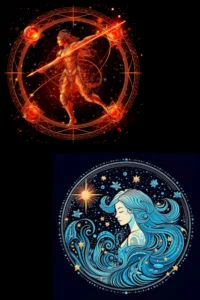The age-old debate between spirituality and science has been a topic of intrigue, contention, and reflection for centuries. While spirituality delves into the realm of the unseen, the intangible, and the transcendent, science seeks to understand the world through empirical evidence, observation, and experimentation. At first glance, these two domains might seem at odds with each other, but a deeper exploration reveals a fascinating interplay between them. This article delves into the intricate relationship between spirituality and science, examining whether they can coexist harmoniously.
Historical Context
Historically, the realms of spirituality and science were not as divided as they might seem today. Many ancient civilizations, from the Greeks to the Indians, integrated spiritual beliefs with scientific observations. Renowned scientists like Isaac Newton and Albert Einstein also spoke of the profound mystery of the universe, hinting at a deeper, spiritual dimension.
The Apparent Dichotomy
- Differing Methodologies: Science relies on the scientific method—observation, hypothesis, experimentation, and conclusion. Spirituality, on the other hand, often relies on personal experience, introspection, and revelation.
- Different Domains: While science seeks to understand the external world, spirituality delves into the inner realm of consciousness, purpose, and the nature of existence.
Points of Convergence
- The Mystery of Consciousness: Both science and spirituality grapple with the enigma of consciousness. While neuroscience seeks to understand it from a biological perspective, spiritual traditions explore consciousness as the very essence of existence.
- Quantum Physics: The discoveries in quantum physics, with its particles that can exist in multiple states and places simultaneously, resonate with many spiritual concepts of interconnectedness and oneness.
- The Universe’s Order: The intricate laws and patterns observed in the universe, from the Fibonacci sequence in nature to the cosmic dance of galaxies, hint at a deeper order and intelligence, often alluded to in spiritual texts.
The Complementary Nature
- Holistic Understanding: While science provides a detailed understanding of the parts, spirituality offers insights into the whole. Together, they can offer a more holistic perspective on existence.
- Ethical Considerations: Scientific advancements, especially in fields like biotechnology and artificial intelligence, bring forth ethical dilemmas. Spirituality, with its emphasis on morals and the greater good, can provide guidance in navigating these challenges.
- Mental Well-being: Scientific studies have shown the benefits of spiritual practices, such as meditation and prayer, on mental health, highlighting the complementary nature of the two realms.
The Way Forward
- Interdisciplinary Dialogue: Encouraging dialogue between scientists and spiritual leaders can foster mutual respect, understanding, and collaboration.
- Education: Integrating both scientific and spiritual perspectives in educational curricula can provide a more rounded, holistic understanding of the world.
- Research: Scientific research into spiritual experiences, such as near-death experiences or the impact of meditation on the brain, can bridge the gap between the two domains.
Conclusion
The interplay between spirituality and science is not a battle of opposing forces but a dance of complementary perspectives. While they operate in different domains with distinct methodologies, they both seek to unravel the mysteries of existence. By recognizing the value each brings and fostering a spirit of collaboration, humanity can gain a deeper, more holistic understanding of the universe and our place within it.







